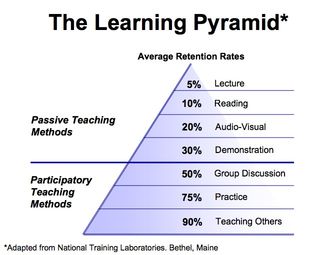🧠UNDERSTANDING MEMORY PROCESSES🧠
WHAT IS MEMORY ?
-The ability to remember past experience and the power or process of recalling to mind previously learned facts, experience, impression, skills and habits.
MEMORY AND LEARNING
UNDERSTANDING MEMORY PROCESS
💢SENSORY MEMORY
⇥Numerous incoming information from 5 senses will be stored in the sensory memory for an instant.
⇥If one PAY ATTENTION to the stimuli, it will go to the short-term memory(STM). If one does not pay attention, then the information will be lost.
💢SHORT-TERM MEMORY(STM)
⇥Very limited storage.
⇥Information must be REHEARSED /REPEATED or use SOME ACTIVE LEARNING strategies in order to get information to LTM, otherwise information will be forgotten.
💢LONG-TERM MEMORY(LTM)
⇥Unlimited and large storage.
⇥From STM, information moved to LTM and stored here for later use. If the information is not being used for some time, forgetting may occur.
MEMORY PROCESS

👀MEMORY STRATEGIES👀
MEMORY STRATEGIES,WHY IT IS IMPORTANT?
💥Memory strategies will help students in their encoding,storing and retrieving the information(helps to remember and recall).
HOW TO FORGETTING COULD OCCUR?
- Did not pay attention to the information.
- Did not understand the information.
- Cramming(last minute study).
- Did not have good strategies.
- Interference(having 2 exams on the same day especially psychology and counselling).
- Test anxiety(negative thoughts about oneself,did not prepare well for the test).

GENERAL MEMORY STRATEGIES
⇝SPACE PRACTICE
- Research studies have shown that you'll retain more information if you study for 8 hours over 4 days(space practice)instead of 8 hours at one time(massed practice).
- Massed practice,like cramming,involves studying all the material at one time.
- Spaced practice,on the other hand,involves spacing your study time over a longer period,with breaks between practice sessions.
⇝BREAK TASKS DOWN
- Instead of trying to learn all of the material for your exam at one time(cramming),study only one or two chapters(and the accompanying lecture material)each day.
- When you study small chunks of material at one time,you can do a better job of getting it into LTM.
⇝REPETITION
- If you continue to practice that same material over a period of days,you'll be able to strengthen and maintain your memory of it.
- Strengthen your LTM.
⇝OVER LEARNING
- Over learning is an important strategy for test preparation.
- Over learning involves continuing to work on material even after it's learned after it's in LTM.
- This practice is very helpful in improving your memory. Each time you review the material,you reduce forgetting and strengthen the path to your LTM.
SPECIFIC MEMORY STRATEGIES
⇻REHEARSAL STRATEGIES
- Rehearsal strategies involve practicing the material until it is learned.
- Low-level rehearsal -Reading over material a few times, saying it over again,or even copying it several times.
- High-level rehearsal strategies -Outlining, predicting question and creating charts and concept maps involve elaborative rehearsal .
⇻ELABORATION STRATEGIES
- Association to associate or "connect" each word or event with person,place,thing,feeling or situation (e.g. spell dessert-remember that dessert has lots of sugar so it has two s's/ backward spell stressed)
- Acronyms/catchword (e.g. IPOS-information processing cycle for a computer)
- Acrostics/catchphrase(e.g. MJKHBIU-remember rainbow colors )
- Imagery- visualize the image of the information needed no.
- Organizational strategies.Tasks such as listing,ordering,grouping,outlining,mapping,charting and diagramming are all examples of organizational strategies.
- Comprehension monitoring strategies (e.g. take self-test, group discussion)
CONCENTRATION
Focusing your attention on what you are doing
CAUSES OF POOR CONCENTRATION
⇥Lack of attention.
⇥Lack of interest.
⇥Lack of motivation.
⇥Distraction from others.
⇥Uncomfortable environment.
⇥Physiological matters-illness, tiredness.
⇥Physiological matters-personal problems,worries,anxieties.

|
| It is a comprehension strategy that facilities students think about the text they are reading while they are reading. |






No comments:
Post a Comment